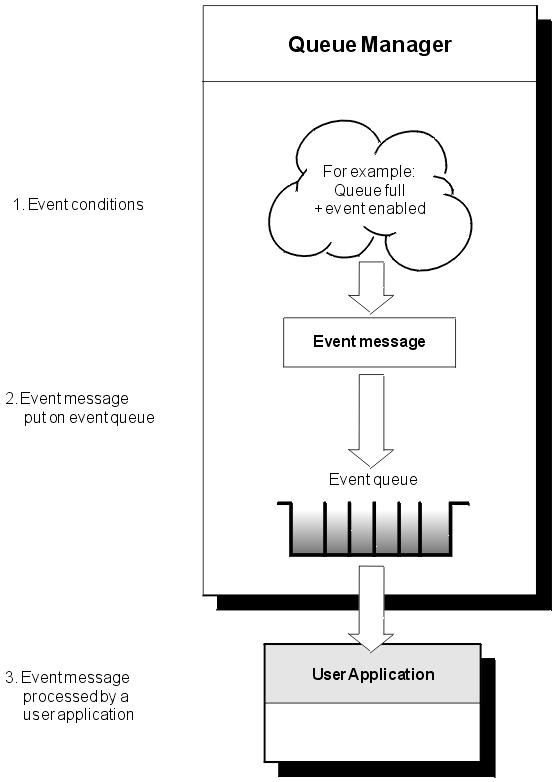Instrumentation events
An instrumentation event is a logical combination of conditions that a queue manager or channel instance detects and puts a special message, called an event message, on an event queue.
IBM MQ instrumentation events provide information about errors, warnings, and other significant occurrences in a queue manager. We can use these events to monitor the operation of queue managers (with other methods such as Tivoli NetView for z/OS ).
Figure 1 illustrates the concept of instrumentation events.

Event monitoring applications
Applications that use events to monitor queue managers must include the following provisions:
- Set up channels between the queue managers in your network.
- Implement the required data conversions. The normal rules of data conversion apply. For example, if we are monitoring events on a UNIX system queue manager from a z/OS queue manager, ensure that you convert EBCDIC to ASCII.
Event notification through event queues
When an event occurs, the queue manager puts an event message on the appropriate event queue, if defined. The event message contains information about the event that we can retrieve by writing a suitable MQI application program that performs the following steps:- Get the message from the queue.
- Process the message to extract the event data.
The related information describes the format of event messages.
Conditions that cause events
The following list gives examples of conditions that can cause instrumentation events:
- A threshold limit for the number of messages on a queue is reached.
- A channel instance is started or stopped.
- A queue manager becomes active, or is requested to stop.
- An application tries to open a queue specifying a user ID that is not authorized on IBM MQ for IBM i, Windows, UNIX and Linux systems.
- Objects are created, deleted, changed, or refreshed.
- An MQSC or PCF command runs successfully.
- A queue manager starts writing to a new log extent.
- Put a message on the dead-letter queue, if the event conditions are met.
- Event types
Use this page to view the types of instrumentation event that a queue manager or channel instance can report - Control events
You enable and disable events by specifying the appropriate values for queue manager, queue attributes, or both, depending on the type of event. - Event queues
When an event occurs, the queue manager puts an event message on the defined event queue. The event message contains information about the event. - Format of event messages
Event messages contain information about an event and its cause. Like other IBM MQ messages, an event message has two parts: a message descriptor and the message data.
Parent topic: Event monitoring
Related concepts